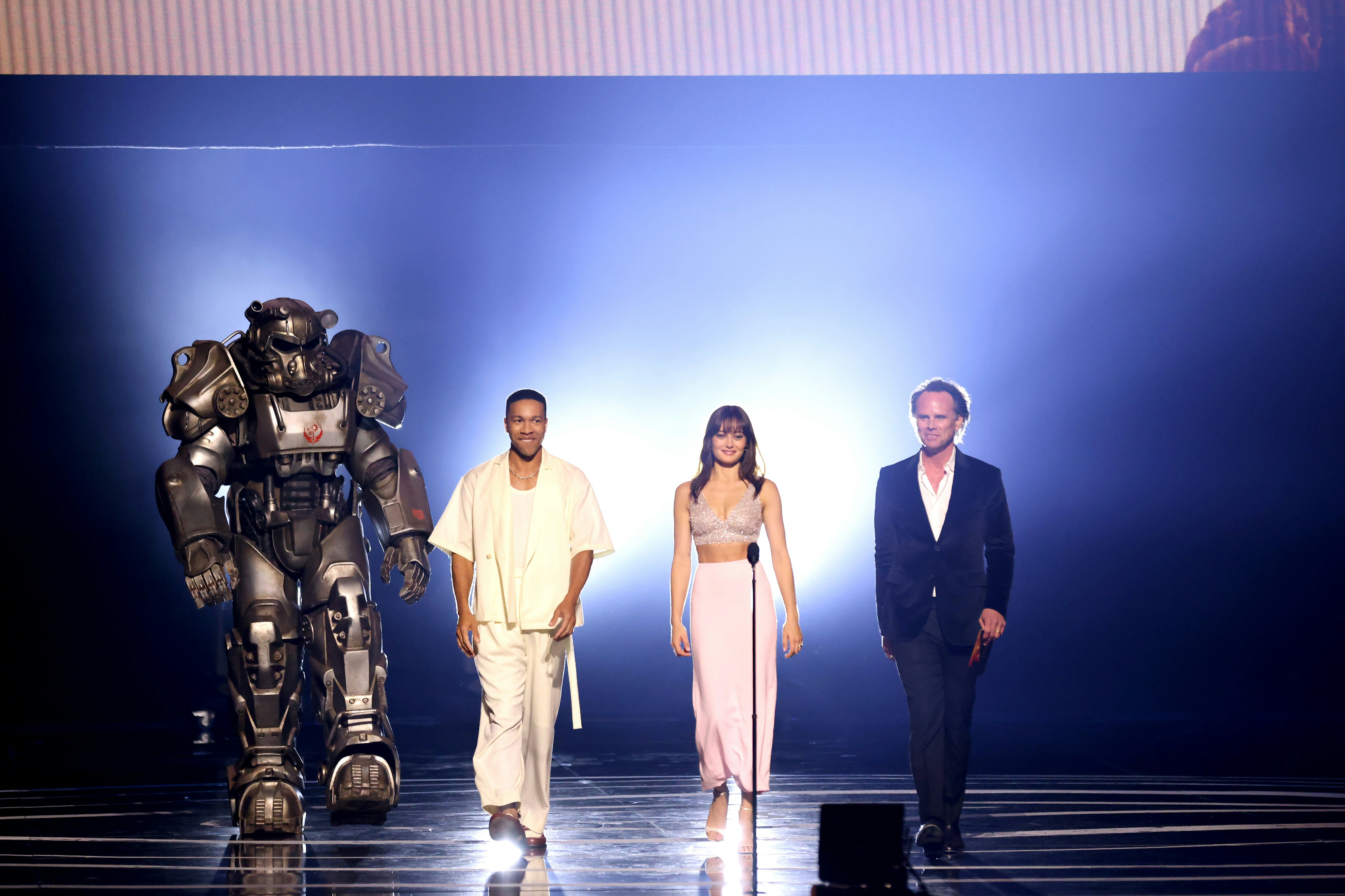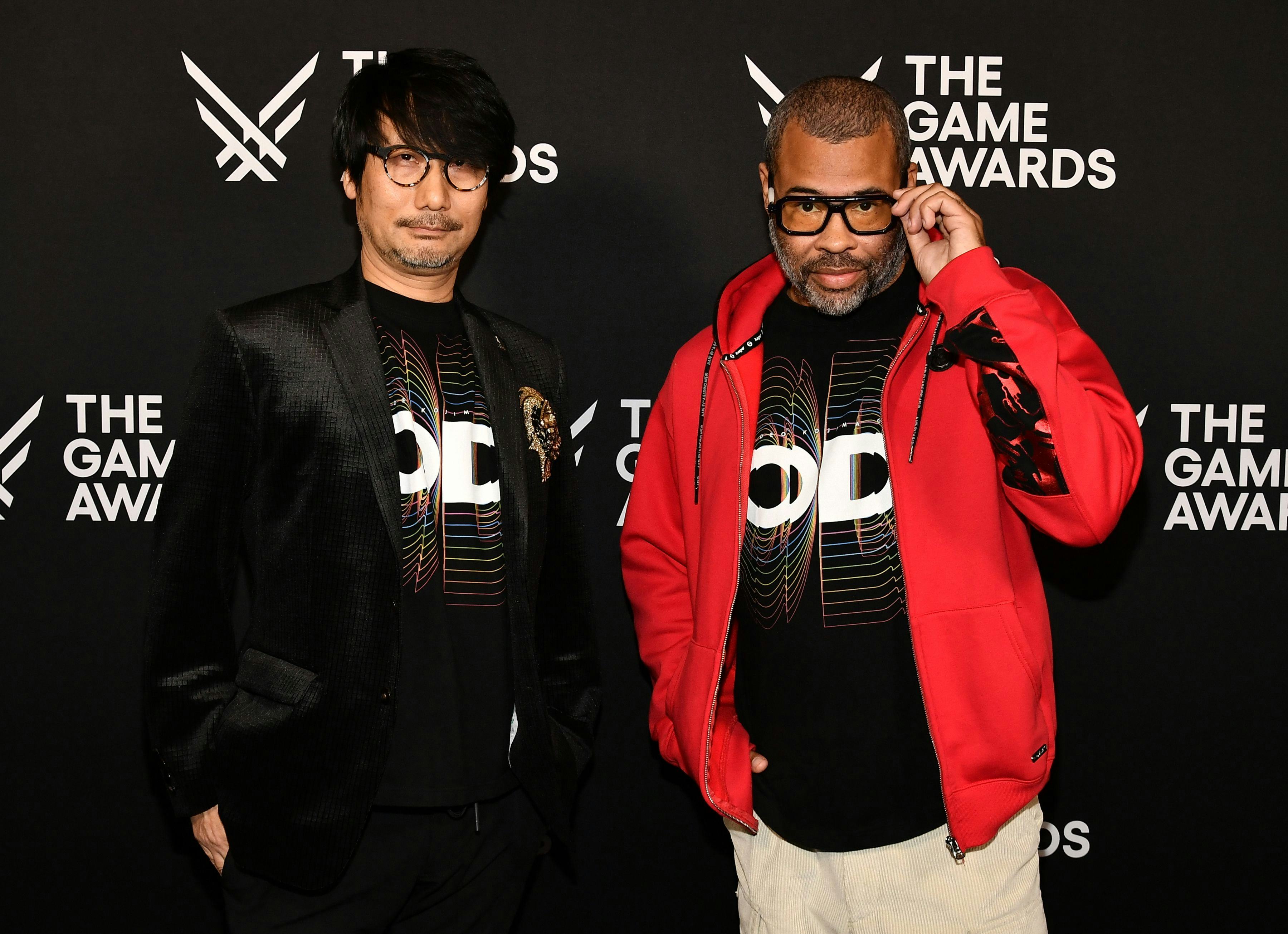
The Game Awards 2023 had two problems: what it made time for and what it didn't.
What The Game Awards made time for: ads, rambling celebrity monologues, and more ads. What it didn’t make time for: the people who make games, the awards they received, and the opinions of people that the show claims to lift up.
You may have noticed that two things The Game Awards spends the least time on are games and awards. More than 30 awards were given out last night. That’s quite a full docket, but The Game Awards made space for them all by keeping their recipients moving like they were all on a conveyor belt.
As developer JC Lau shared on Twitter, award recipients were told that they had only 30 seconds to accept their honors. An oh-so-helpful countdown clock kept them on track, and loud music drowned out anyone who got notions of saying anything but the barest “I’d like to thank the team” acknowledgements. The Game Awards did not respond to Inverse’s request for comment.
Neil Newbon, who has previously spoken about his performance as Astarion resonating with the LGBTQ+ community and survivors of abuse, was rushed off the stage as he again tried to thank those fans. Baldur’s Gate 3 studio head Swen Vincke wasn’t even granted a few extra seconds when he dedicated the Game of the Year award to team members who passed away during the game’s production. Instead, music overwhelmed their words as these people were rushed off stage.
And that’s only speaking of the lucky developers who were deemed worthy of stage time at all. More than a dozen awards were shoved into rapid-fire segments where host Geoff Keighley read off four or five winners at a time, barely allowing a break for applause, let alone any appreciation for the developers behind the games. Even FromSoftware, the winner of last year’s Game of the Year award for Elden Ring, was relegated to the lightning round this year.
To make matters worse, some awards didn’t even make the ceremony at all, but were instead handed out during the 30-minute pre-show. That category included the Innovation in Accessibility award for Forza Motorsport, which feels like an especially egregious slight for a show that likes to pat itself on the back for its commitments to diversity and accessibility.
The 30 seconds allotted for speeches was still more time than was spared for the estimated 9,000 members of the games industry laid off this year. Throughout the year, game developers and fans alike have called for Geoff Keighley to address the state of the industry at this year’s show. But even with members of Game Workers of Southern California and SAG-AFTRA demonstrating outside the theater, there was no time to honor those 9,000 people.
Likewise, there was no time for Future Class, a group established by The Game Awards to honor “inspiring individuals who represent the bright, bold, and inclusive future of video games.”
More than a week before the show, 66 of the 150 members in Future Class circulated an open letter calling for The Game Awards to read a statement acknowledging the group’s support for a ceasefire in Palestine. The letter was signed by more than 2,900 members of the games industry and media (for full disclosure, the three writers of Inverse’s gaming section have all signed the letter).
Future Class’ call went unanswered.
So what did The Game Awards fill all the time it saved by ignoring developers and its own Future Class with? Ads, of course.
Game announcements and trailers have always been treated with more importance by The Game Awards than the developers that they are meant to honor, but this year, even they got lost in the flood. In addition to updates on anticipated games and endless “world premiere” announcements, we were inundated with commercials — not just for games, but also for Microsoft, Google, and Samsung. The morning after the show, I was already struggling to remember more than two or three of the games announced.

Of course, let’s not forget, there was one developer who was given as much time to speak as he wanted. Hideo Kojima returned to The Game Awards stage this year to share… something called OD. Alongside filmmaker Jordan Peele, who’s also working on OD, Kojima was granted more than eight minutes to hype up the project and himself, without really giving any indication of what the game will entail.
Considering The Game Awards’ 30-second speech rule, Kojima’s cryptic announcement was the equivalent of 16 acceptances from industry legends like Sam Lake for Alan Wake 2 and Eiji Aonuma for Tears of the Kingdom. Even celebrity presenters like Matthew McConaughey, Simu Liu, and Timothée Chalamet were given time to leisurely bask in the spotlight.
The easy, cynical response to all this is to say, “That’s not what The Game Awards is for” or “The Game Awards sucks anyway, so who cares?” But to say that is to let The Game Awards off the hook and concede that the industry’s biggest showcase can’t be better at honoring the workers and diverse voices that it represents.
In rare moments, we did see glimpses of a better version of The Game Awards. Pre-recorded statements from Future Class members on the power of games, fantastic musical interludes, the stirring orchestral medley before Game of the Year, British actor Abubakar Salim emotionally dedicating his debut game to his late father — these moments show that The Game Awards could actually do the talent and passion of game developers justice, if only it tried.
As I’ve previously written, Keighley has said multiple times that The Game Awards is about honoring developers and lifting up those who make the games industry a better place. Until it lives up to that promise, it falls to the rest of us not to throw up our hands in defeat, but to push for change ourselves.







